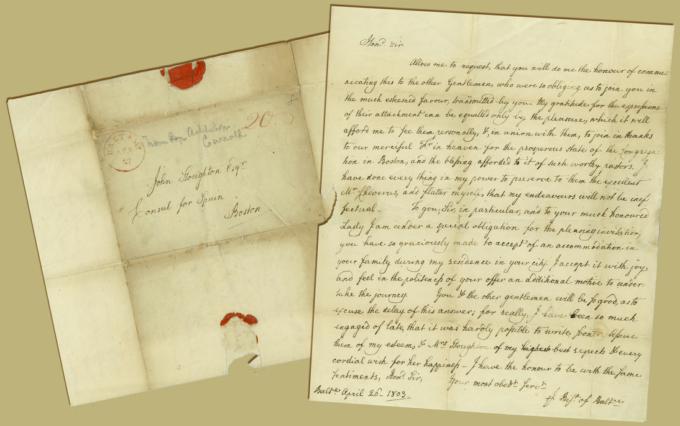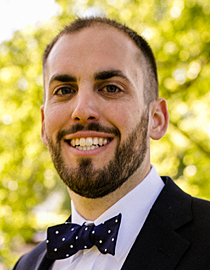
Culture
Father Cheverus, though drawn to the idea of returning home, replied that he could not simply leave the New England missions at will, and that his superiors would have to review any request for reassignment.

Lester
In February 1801, Father Jean Cheverus received a letter from his father in France. Father Cheverus had fled France during the revolution, which saw a growing resentment towards and the persecution of Catholic clergy, but by this time Napoleon provided the country with stability and was allowing the clergy to return on the condition they took an oath of fidelity. Enclosed in his father's letter was a second letter from a member of Father Cheverus' former parish in France, asking him to return home and resume his role as their spiritual leader.
Father Cheverus, though drawn to the idea of returning home, replied that he could not simply leave the New England missions at will, and that his superiors would have to review any request for reassignment. Additionally, he did not desire to take the oath of fidelity, fearing what conditions he would be subject to after doing so. He, therefore, determined he would delay his return, but indicated he would not ignore the pleas of his parishioners in France indefinitely.
In the following months, he received additional letters urging him to return home and, around March 1803, began to reconsider. He wrote Bishop John Carroll of Baltimore explaining the situation and asking for his advice. He understood the implications of leaving the mission, relating that a community of converts in Maine he baptized were pleading with him not to leave them so soon. He also acknowledged the lack of priests and financial support in the region would make it difficult for the mission to continue after his departure.
This last point is reflected in correspondence sent from his colleague in Boston, Father Francis Matignon, to Bishop Carroll. Father Matignon, wholly invested in seeing his colleague remain where he was, refused to counsel him directly but shared his concerns with Bishop Carroll openly. He believed he was becoming too weak to lead the Boston mission, and that if Father Cheverus left there was a severe risk that it would dissolve without his leadership. He did make some suggestions should this happen, including the return of Father John Thayer, a New England native formerly stationed in Boston, or asking a religious order to assume control of the mission.
Bishop Carroll received a similar letter from a group of concerned citizens, including the Consul to Spain, John Stoughton, who wrote to express their esteem for Father Cheverus and desire for him to stay. Bishop Carroll's reply, dated April 26, 1803, and addressed to Stoughton, is part of the archive's manuscript collection. In the document, he conveys his gratitude to the group for their correspondence, and hopes to do so again in person. In the letter, he assures them, "I have done everything in my power to preserve to them the excellent Mr. Cheverus, and flatter myself that my endeavors will not be ineffectual."
His "endeavors" include his reply to Father Cheverus' request for advice, in which he convinced him to stay by recapitulating the points made by Father Matignon. He continues to thank God for "the prosperous state of the Congregation in Boston," and the "blessing afforded to it of such worthy pastors."
In the second part of the letter, he thanks Mr. Stoughton and his wife for their invitation to stay with them during his upcoming visit to Boston. The visit, five months later, would be made to dedicate the Church of the Holy Cross on Franklin Street, on Sept. 19, 1803.
Following this episode, Father Cheverus would remain in Boston and, when the mission was made a diocese in 1808, was named its first bishop. He would finally return to France in 1823, and while his departure caused distress among New Englanders once again, he left a strong foundation upon which the diocese would continue to grow.
- Thomas Lester is the archivist of the Archdiocese of Boston.
Recent articles in the Culture & Events section
-
What is truth?Michael Reardon
-
The 75th anniversary of St. Ignatius of Loyola Church, Chestnut HillThomas Lester
-
The most important prayer you already knowLaura Kelly Fanucci
-
Two years after DobbsRussell Shaw
-
Scripture Reflection for July 21, 2024, Sixteenth Sunday in Ordinary TimeDeacon Greg Kandra





